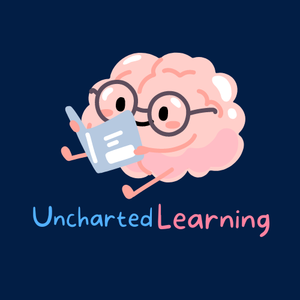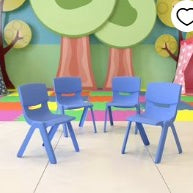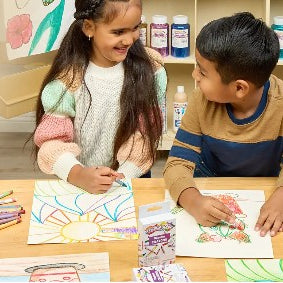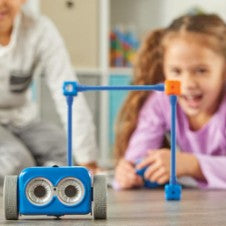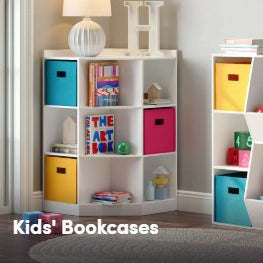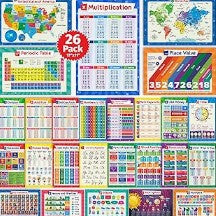In a world dominated by rigid curriculums and standardized assessments, the unschooling approach offers a liberating perspective on education. Imagine an environment where natural learning takes center stage, empowering children to follow their interests and explore subjects in a way that feels meaningful to them. Unschooling embraces the idea that children, driven by their innate curiosity, can shape their educational path without the confines of traditional schooling.
What is Unschooling?
Unschooling goes beyond the confines of conventional education. It encourages parents to trust their children's innate desire to learn and to facilitate their learning experiences rather than dictate them. Unlike homeschooling, which often follows a structured curriculum at home, unschooling places emphasis on child-led learning through everyday experiences, exploration, and play.
The Role of Parents in Unschooling
As a parent embracing unschooling, your role shifts from being a teacher to being a facilitator and a partner in your child's learning journey. Instead of imposing rigid schedules and academic requirements, you provide an environment rich in resources and opportunities for exploration. You support your child's interests, encourage their questions, and help them find answers through real-life experiences, books, videos, and conversations.
FYI: Some links here help us continue creating content (small commission).
Benefits of Unschooling
Unschooling offers a myriad of benefits for both children and parents. By allowing children to follow their passions and interests, it nurtures a love for learning that extends beyond textbooks and classrooms. It fosters creativity, critical thinking, and problem-solving skills as children engage in hands-on, experiential learning. Unschooling also promotes independence and self-motivation, as children take ownership of their education and pursue knowledge that is meaningful to them.
Our Unschooling Journey: A Personal Story
 As a parent who has embraced unschooling, I've witnessed firsthand the transformative power of this approach. My children, once disinterested in traditional subjects like spelling and math, have flourished in an environment where learning is driven by curiosity and exploration.
As a parent who has embraced unschooling, I've witnessed firsthand the transformative power of this approach. My children, once disinterested in traditional subjects like spelling and math, have flourished in an environment where learning is driven by curiosity and exploration.
Take, for example, my youngest daughter's journey with reading. Initially reading below grade level, I was concerned about her progress. However, through unschooling methods like reading together, listening to audiobooks, and engaging in real-world reading experiences, her skills have skyrocketed. We started on a program called Touch-Type Read Spell, at her request, and this is where she excelled. She now reads at a level far beyond her peers, demonstrating the effectiveness of allowing children to learn at their own pace and in their own way.
Similarly, math skills have blossomed through activities like playing Monopoly and utilizing online resources like Khan Academy. By integrating math into everyday life experiences, my children have developed a deep understanding of mathematical concepts and problem-solving strategies.
Resources for Unschooling Success
While unschooling may seem daunting at first, there are numerous resources available to support parents on this journey. Websites, forums, and social media groups offer a wealth of information and advice from experienced unschooling families. Additionally, educational programs like Touch Type Read Spell (TTRS) and Khan Academy provide valuable tools for supporting literacy and numeracy skills in a flexible, child-centered manner.
Conclusion: Embracing the Freedom of Unschooling

In conclusion, unschooling offers a liberating approach to education that empowers children to take ownership of their learning journey. By trusting in their natural curiosity and providing a supportive environment for exploration, parents can cultivate a lifelong love for learning in their children. While it may require a shift in mindset and approach, the rewards of unschooling – from academic success to personal growth – are immeasurable. So, if you're seeking a more flexible, child-centered approach to education, consider embracing the freedom of unschooling and watch as your child's potential unfolds before your eyes.
As we reflect on the myriad possibilities that unschooling offers, it's clear that this path isn't just about academic learning—it's a journey towards fostering independence, confidence, and a genuine interest in the world around us. It challenges us to rethink traditional education and to appreciate the boundless potential each child holds. With each passing day, as we observe our children navigate their learning experiences with enthusiasm and determination, we are reminded of the profound impact that our educational choices have on their futures.
 As a parent who has embraced unschooling, I've witnessed firsthand the transformative power of this approach. My children, once disinterested in traditional subjects like spelling and math, have flourished in an environment where learning is driven by curiosity and exploration.
As a parent who has embraced unschooling, I've witnessed firsthand the transformative power of this approach. My children, once disinterested in traditional subjects like spelling and math, have flourished in an environment where learning is driven by curiosity and exploration.